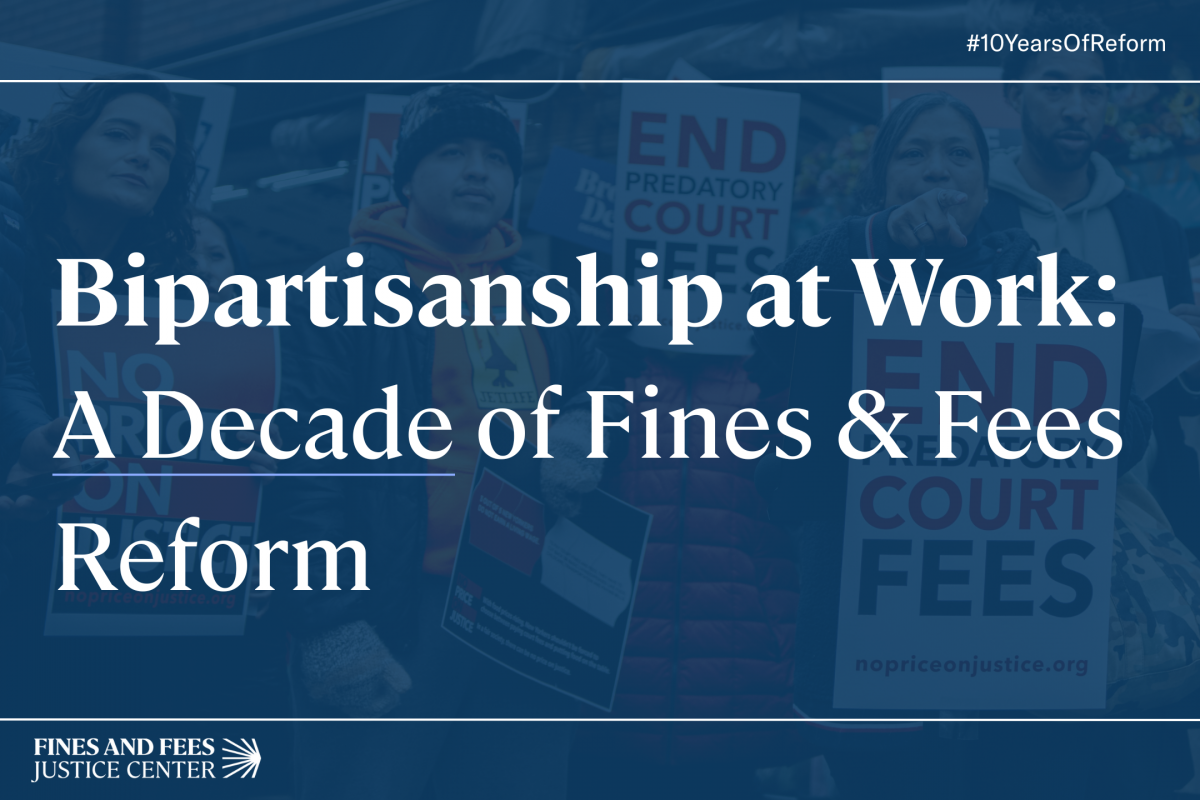By Joanna Weiss and Priya Sarathy Jones – Co-Executive Directors – Fines and Fees Justice Center
In an era marked by deep political divisions, certain issues transcend partisan boundaries, uniting leaders in pursuit of common-sense reforms. The movement to eliminate burdensome justice system fines and fees has emerged as one such cause, gaining support from policymakers across the political spectrum. A striking example is Oklahoma’s Governor Kevin Stitt, a Republican leading one of the nation’s reddest states, who recently announced his full support to overhaul his state’s approach to court-imposed financial sanctions. In his February 2025 State of the State Address, Governor Stitt called for the elimination of criminal justice fees, acknowledging their role in trapping individuals in cycles of debt and, all too often, never-ending punishment. At the other end of the political spectrum, after the Maryland legislature eliminated the onerous monthly assessments imposed on people on parole, Democratic Governor Wes Moore expunged all outstanding debt from those fees.
This bipartisan agreement has been a decade in the making. Ten years ago this month, the Department of Justice issued a scathing report on the police department in Ferguson, Missouri. Prompted by the killing of Michael Brown and the subsequent protests, the DOJ found that Ferguson’s police, municipal court, and City Hall operated in unison to exploit the justice system for financial gain. Ferguson imposed high fines for breaking the law, most often on low level offenses that had no impact on public safety. The city then taxed each fine and each point of contact with the justice system with added fees. Whenever the city faced a budget shortfall, the mayor directed police to issue more tickets. Ferguson’s municipal court functioned primarily to enforce these tickets, using driver’s license suspensions and arrest warrants to coerce residents into making exorbitant payments. In 2014, the city’s court issued 2.2 arrest warrants for every adult resident, balancing the city’s budget by extracting revenue through the justice system. The report ignited a nationwide reform movement.
This wasn’t just a Ferguson problem. Most states, counties, and cities were following a similar formula. As a result, no other criminal justice issue affects more Americans—one in three Americans have owed fines and fees in the past decade. As of 2018, and relying on only partial data from half the states in the country, the Fines and Fees Justice Center documented more than $27 billion in outstanding fines and fees debt. The awareness raised by the Ferguson report propelled a national movement that unites policymakers, law enforcement, judges, activists, and community and faith-based leaders across the political spectrum.
The broad coalition supporting fines and fees reform has been remarkably effective. In the last seven years, twenty-five states and Washington, D.C. have ended or significantly curbed the counterproductive practice of suspending driver’s licenses for unpaid fines and fees. Ending debt-based driver’s license suspensions has restored dignity and mobility to millions, enabling access to jobs, healthcare, education, and essential services. Ending debt-based suspensions also prevents the diversion of law enforcement and justice system resources for revenue collection rather than protecting our safety and our rights. Just two months ago, Ohio became the latest state to enact this reform with broad bipartisan backing.
In the ten years since the Ferguson Report, nearly half the country has eliminated at least some of their “justice fees.” In today’s hyper-partisan climate, the success of the fines and fees reform movement shows that when it comes to human dignity, there is common ground to be found. Governor Stitt’s recent announcement and Governor Moore’s recent actions, highlights growing bipartisan recognition that we must not use our courts to balance our state and local budgets. This year, legislators in at least half the states in this country will be contemplating fines and fees reform. The momentum is there. The question is whether we will see the fight to the end.
